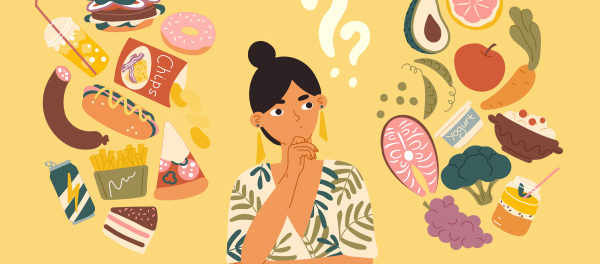How Much Does Your Food Affect Your Mood?

The sugar-laden, high-fat foods we often crave when we are stressed or depressed, as comforting as they are, may be the least likely to benefit our mental health.
As people across the globe grappled with higher levels of stress, depression and anxiety this past year, many turned to their favorite comfort foods: ice cream, pastries, pizza, hamburgers. But studies in recent years suggest that the sugar-laden and high-fat foods we often crave when we are stressed or depressed, as comforting as they may seem, are the least likely to benefit our mental health. Instead, whole foods such as vegetables, fruit, fish, eggs, nuts and seeds, beans and legumes and fermented foods like yogurt may be a better bet.
The findings stem from an emerging field of research known as nutritional psychiatry, which looks at the relationship between diet and mental wellness. The idea that eating certain foods could promote brain health, much the way it can promote heart health, might seem like common sense. But historically, nutrition research has focused largely on how the foods we eat affect our physical health, rather than our mental health. For a long time, the potential influence of food on happiness and mental well-being, as one team of researchers recently put it, was “virtually ignored.”
Excerpted from The New York Times










